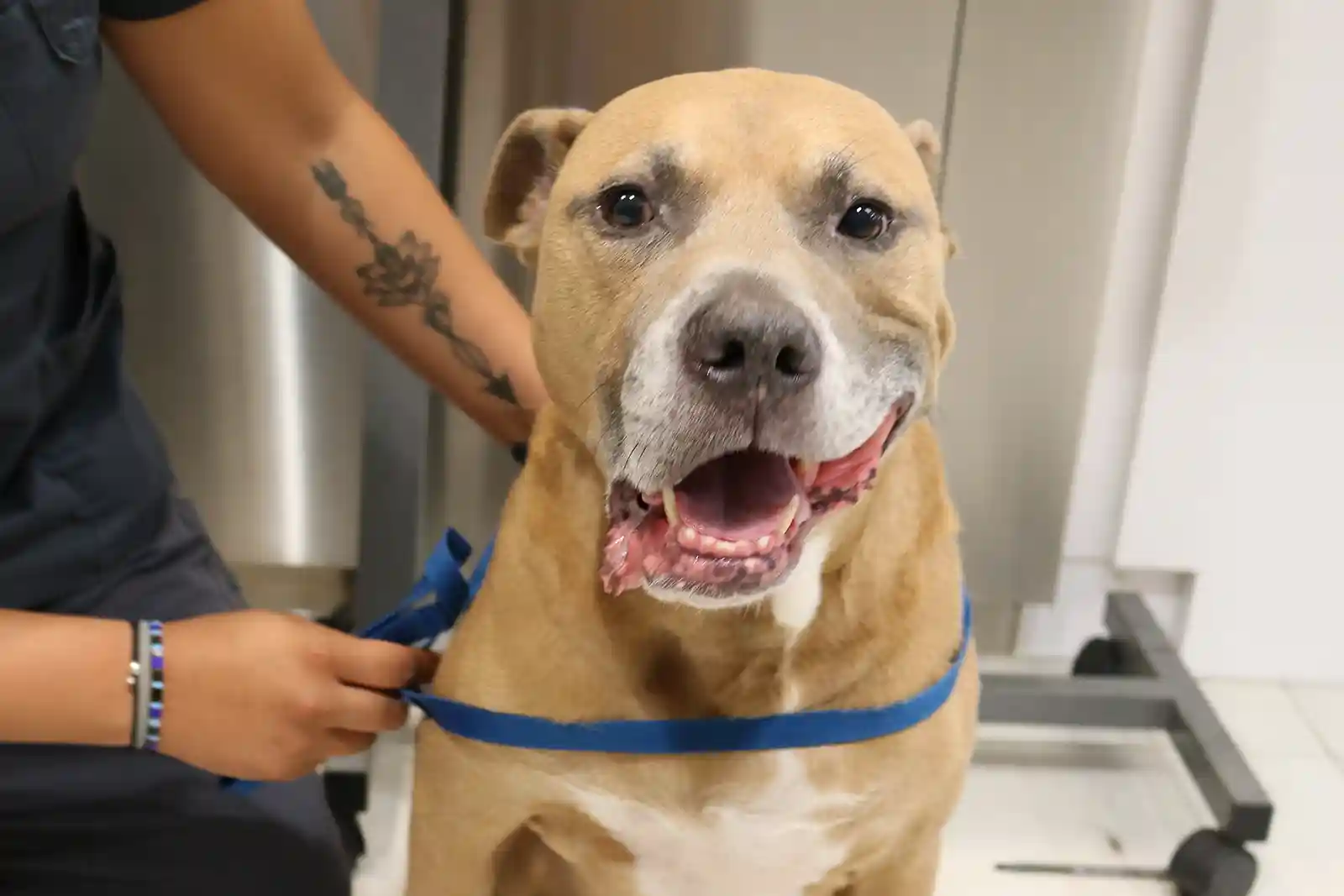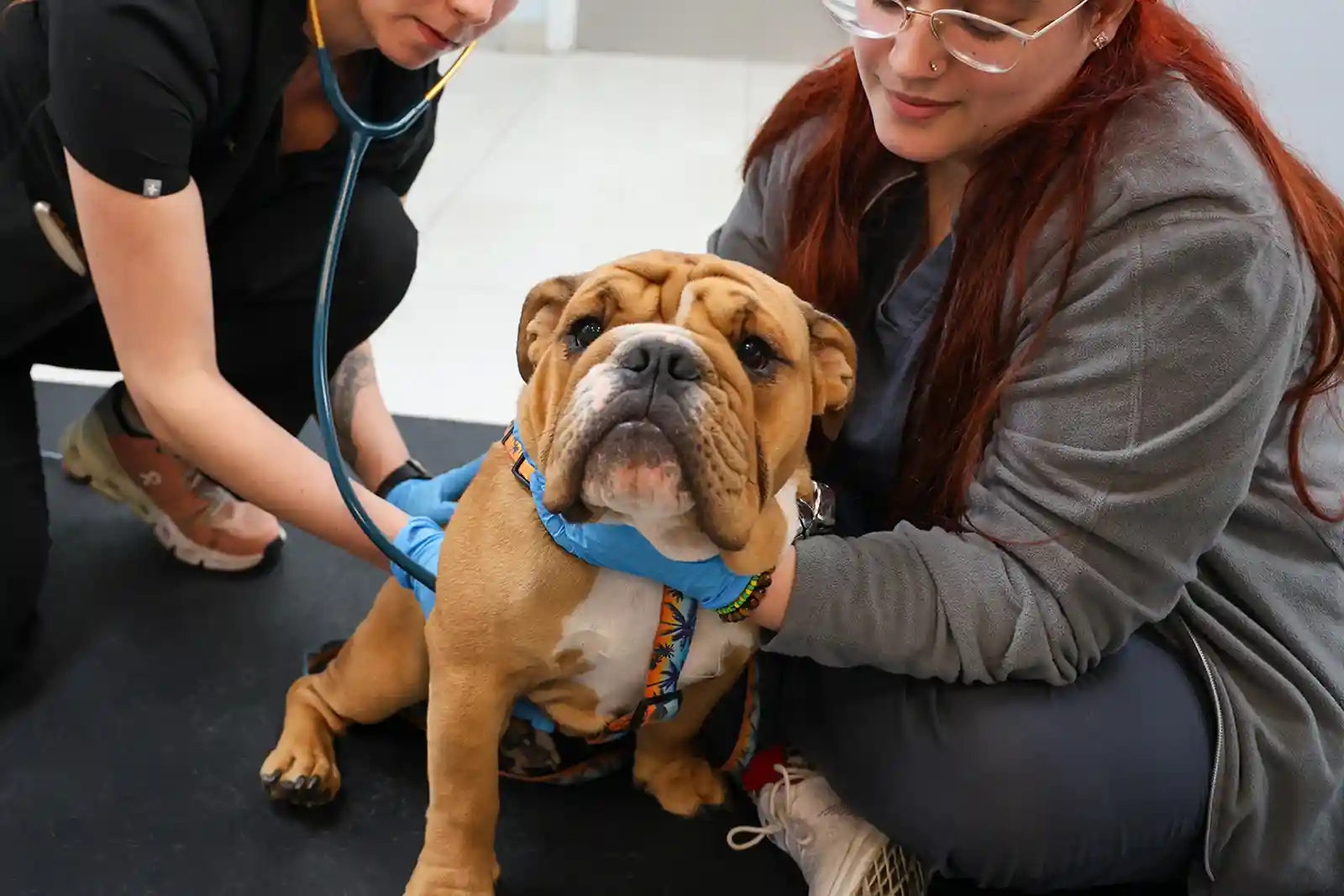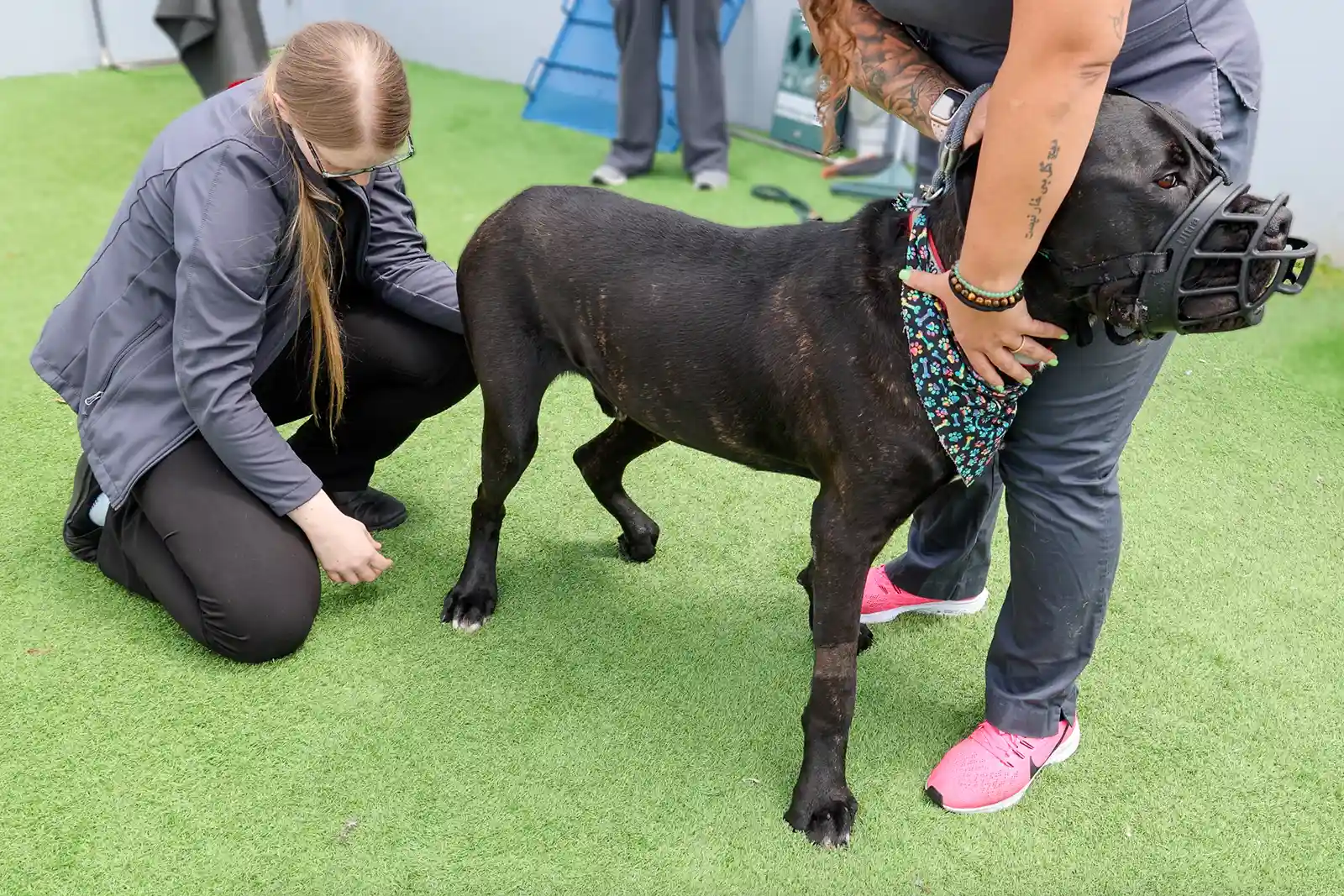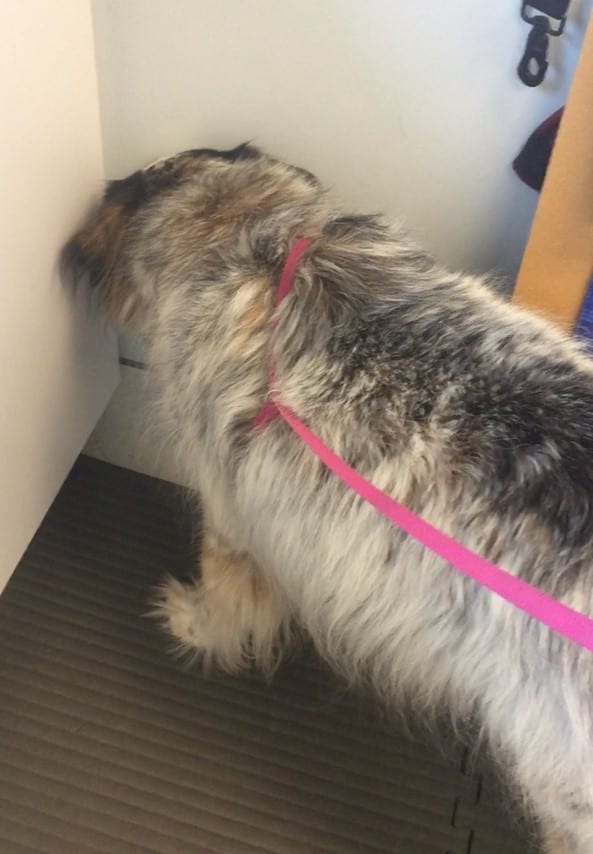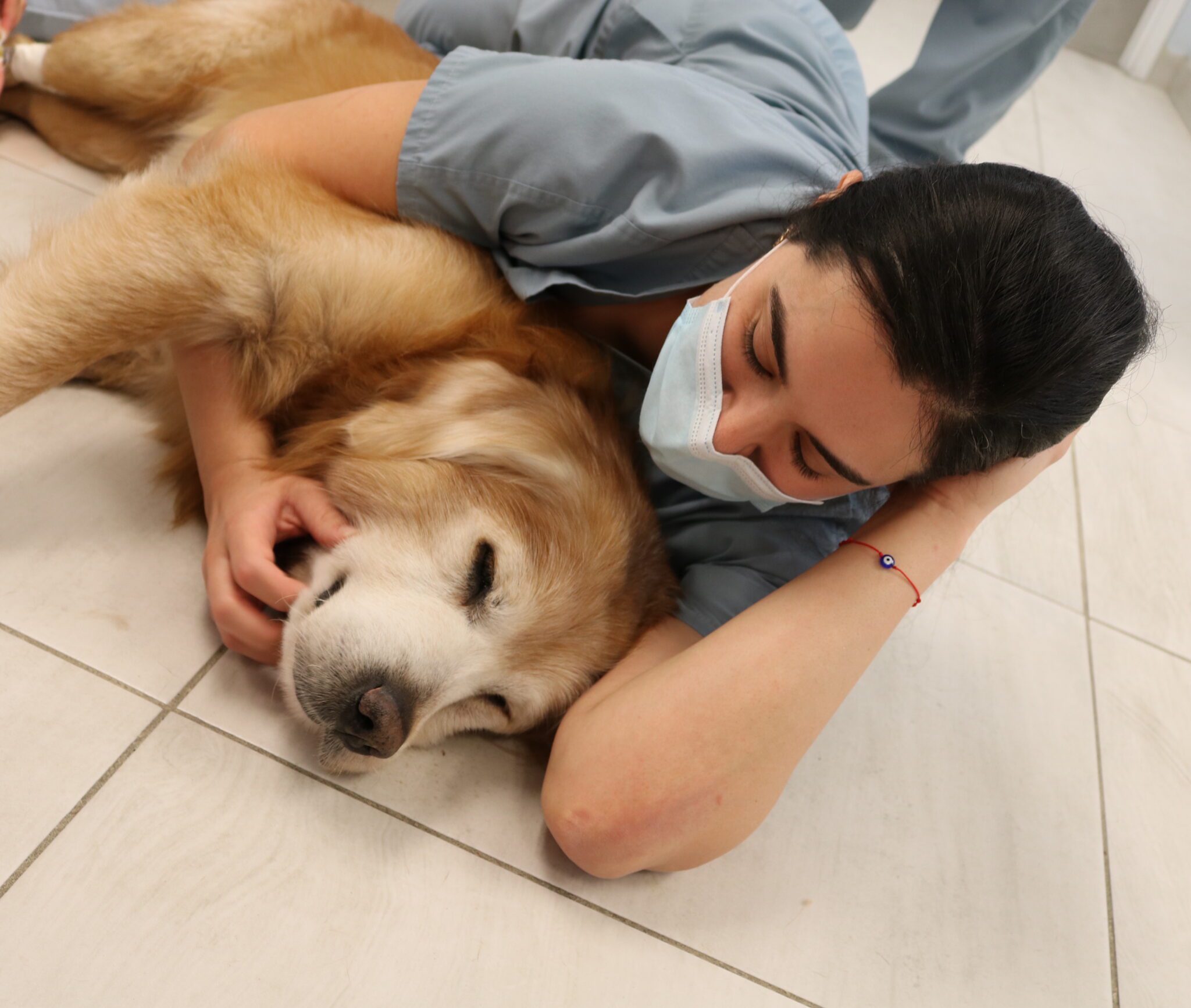Facial Paralysis in Dogs: Your Questions Answered
Facial paralysis in dogs is a fairly common condition seen by veterinary neurologists. The facial nerve controls the muscles responsible for facial expression, salivation, and...
Recognizing Brain Tumors in Dogs: A Guide
Brain tumors are actually a relatively common ailment in older dogs, especially in certain breeds. But what is a tumor exactly? A tumor is an uncontrolled growth of abnormal cells...
My Dog Can't Jump on the Bed Suddenly: Why?
If from one day to the next, your dog suddenly can’t jump on the bed, you may have some cause for concern. A sudden reluctance to jump up is usually caused by some sort of pain,...
What We Know about Wobblers in Dogs
It’s no easy task to describe wobblers in dogs because it’s not just one single problem, and there is still a lot we don’t know about it. "Wobblers" isn’t even necessarily a...
7 Reasons Why Your Dog is Pressing Its Head Against the Wall
Maybe you have an affectionate pup that shows you love by pressing its head against yours while you smother it with smooches, and that’s cute as heck. But if your dog is pressing...
Everything You Need to Know about IVDD in Dogs
It’s ruff to watch someone we love suffer – especially when that someone can’t tell us what’s wrong. So it’s our job as pet parents to look for clues. Is your dog holding its head...
Masticatory Muscle Myositis, Trigeminal Neuritis, and Trigeminal Nerve Sheath Tumors in Dogs: How to Tell Them Apart
Masticatory muscle myositis, trigeminal neuritis, and trigeminal nerve sheath tumors are three different neurological diseases affecting the muscles and nerves of the head in...
Hydrocephalus in Dogs: The Importance of Early Diagnosis
What is hydrocephalus in dogs? Well, in Greek, “hydrocephalus” basically translates to “water on the brain.” Hydrocephalus is a neurological condition caused by too much fluid in...
Myasthenia Gravis in Dogs: What It Is and How SEVN Can Help
Myasthenia gravis in dogs is one of the most commonly recognized neuromuscular diseases in veterinary medicine. In simple terms, the disease interrupts the way nerves communicate...
Nonsurgical IVDD Treatment in Dogs: Is Your Dog a Candidate?
Decisions about IVDD treatment in dogs are made based on the severity and the duration of clinical signs. In some cases, IVDD can be managed nonsurgically. However, without timely...
